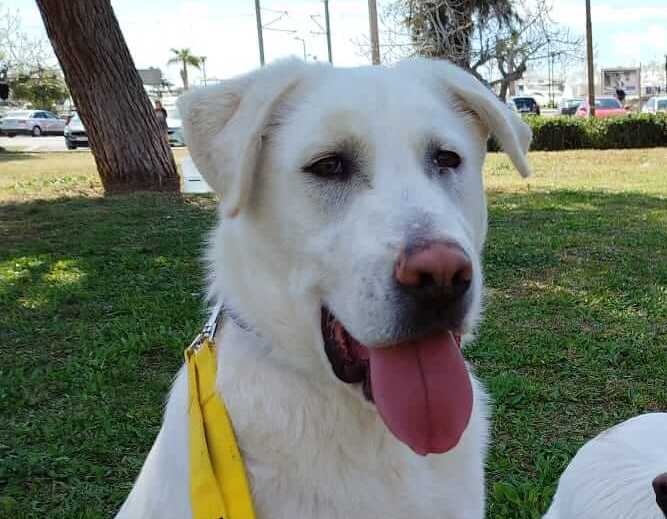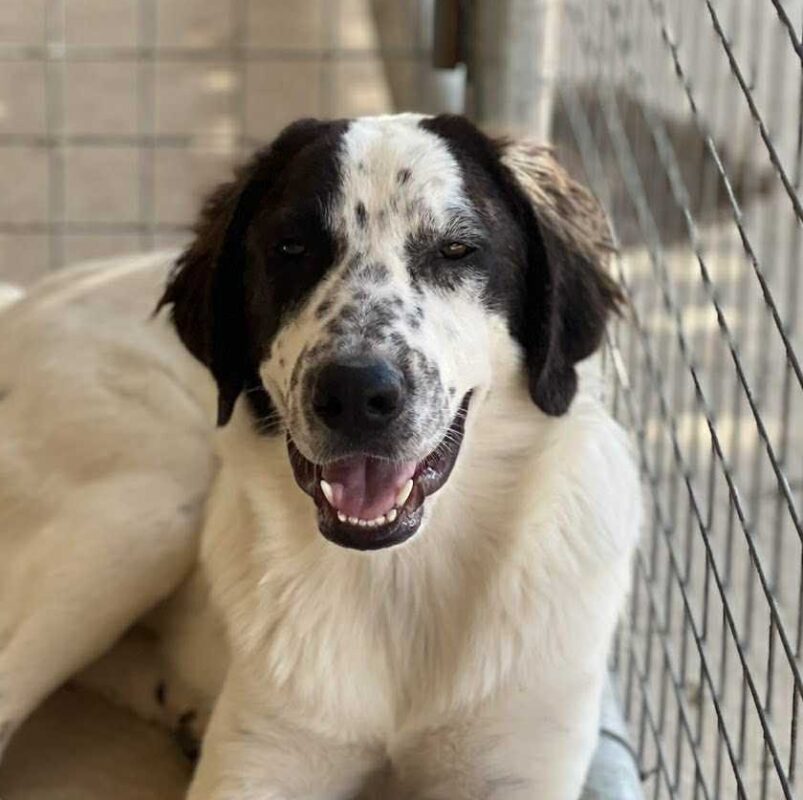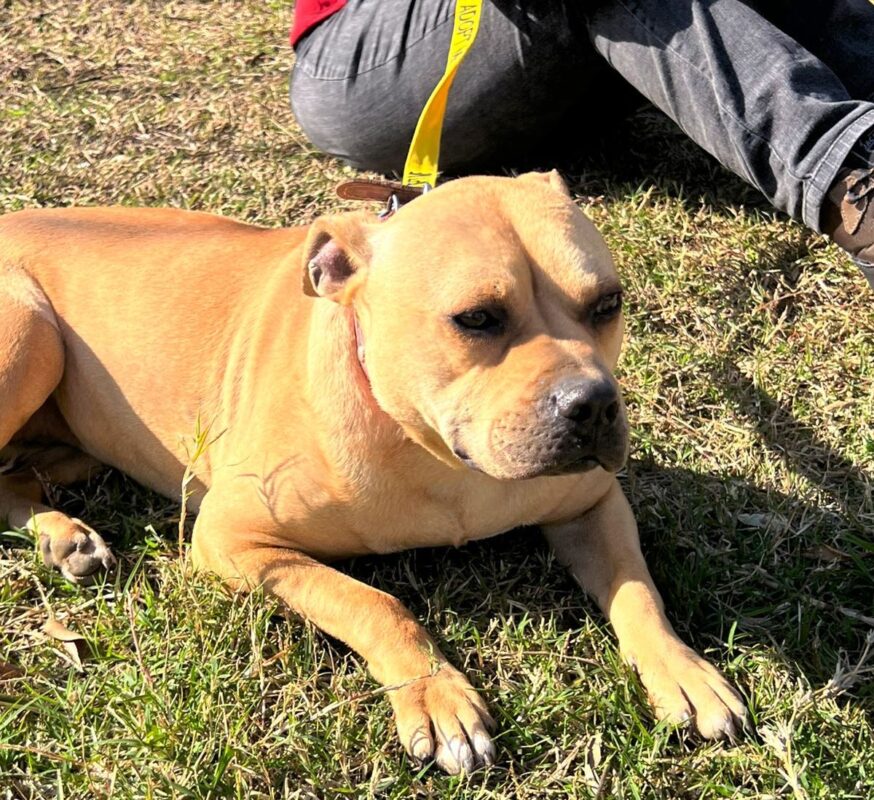Nutrition is the cornerstone for both human and pet health and well-being. Our volunteers here at SPAZ feel the need to inform the public by seeking advice from individuals with specialized knowledge. We therefore reached out and conducted an interview with an expert in the field of veterinary nutrition. Let us introduce you to Mrs. Stavrianna Manolakou, Veterinary & Nutritionist. In our interview she addresses important questions regarding the significance of proper nutrition, the advantages and disadvantages of raw and cooked diets, which type of food is suitable for each age, breed, and health condition of your pet and more. Let us therefore defer to the wisdom and experience of Mrs. Manolakou as we explore the fascinating world of veterinary nutrition.
How important is a proper diet for our four-legged friend?
Just as in humans, nutrition is essential for the overall health of animals. With a complete and balanced diet, we can manage various diseases, such as kidney disease, prevent diseases like obesity, or even eliminate them entirely, such as food allergies.
A natural diet (freshly cooked or raw) is not yet commonly adopted in Greece; what are the positives and negatives of a natural diet?
Freshly cooked or raw diets can be considered the best choice for our dog's health, provided it is done correctly. If it consists of complete and balanced recipes designed for our dog's nutritional needs, there is absolutely no disadvantage in adopting it. On the contrary, the benefits are many. A natural diet hasn't undergone intense thermal processing, it is therefore absorbed to the maximum extent by our pets’ organisms. In a natural meal, we can know exactly what ingredients are included, unlike processed foods. Additionally, natural food is very tasty, resulting in our dog enjoying it even more, especially if they are somewhat "picky" with their food, either due to preference or illness.
What type of food best suits the age, breed, and health condition of a pet?
Nutritional needs vary depending on the animal's age, life stage (e.g., pregnancy), activity level, and any existing health conditions. Puppies, as young animals in a developing age, have increased needs for proteins, fats, and various minerals. On the other hand, a dog over 10 years old requires more dietary fiber to ensure smooth functioning of its gut flora (which often weakens due to a weakened immune system). A dog with low activity levels requires fewer calories than a dog that exercises regularly. Each condition has its own nutritional requirements; for example, in kidney disease, we need to limit protein and phosphorus intake, and in heart disease, we need to limit sodium intake, etc. Most of the above requirements can be met with all types of food (dry food/canned food, raw food, cooked food) as long as the food is properly formulated. As for commercial foods (kibble/canned), there are numerous options available in the market, both for healthy and sick animals. As for natural diets (raw/cooked meals), the options are significantly fewer, especially for sick animals. If there is no suitable commercial option available, then it is possible to design a specific homemade, raw, or cooked recipe by a veterinary nutritionist.
Are there any supplements that can benefit our pets?
Dietary supplements contain nutrients in specific concentrations to serve a nutritional purpose, such as increasing the level of a vitamin in which the body is deficient (like a B12 vitamin supplement), enhancing joint function (such as a chondroitin-glucosamine supplement), or improving skin condition (such as an Omega-3 fatty acid supplement).
Whether an animal needs a dietary supplement depends on each organism and, of course, its diet. If the animal is fed a complete and balanced commercial diet, meaning a diet that contains all the necessary nutrients (amino acids, fatty acids, minerals, vitamins), then there is no need for supplements. If the animal does not eat commercial food, for example, if its guardian prepares homemade food (raw or cooked), then it most likely needs supplements for his/her diet since it is impossible to meet all the nutritional requirements from a daily homemade recipe. However, even if the animal's diet is complete, there may still be a special requirement, such as sensitive joints, excessive hair loss, or intense physical activity. This means that the body's needs for certain nutrients are higher than basic, and perhaps a dietary supplement is necessary.
Obese dogs/cats is something we often encounter. Can you guide us on the portions our pets should eat, in order to avoid obesity ?
The recommended daily amount of food is mandatory and is listed on the packaging of each respective product, varying from one food to another due to their different caloric content. Of course, the package instructions are just a starting point, and we may need to adjust the quantity according to our dog's needs, such as age, weight, and activity level. To avoid obesity, it's crucial to adhere to the daily amount, which can be divided into individual meals throughout the day. It's recommended to weigh the daily amount of food either with a kitchen scale or with a specialized measuring cup designed for that specific food product. Using a measuring cup from a different food product poses the risk of miscalculating the quantity since measuring cups are usually calibrated based on the size of the kibble, which varies from product to product.
We should also be equally careful in giving treats since an increased amount of them poses the risk of unwanted weight gain (due to excess calories) and pancreatitis (since the excess calories are stored as fat in the body). Substituting part of the main meal with treats to avoid reducing the main meal is not a solution because treats are not nutritionally complete, resulting in our pet not being properly nourished in the long run.
Do dogs in Greece have a different dietary need depending on where they are located and the weather conditions they experience? If so, how should we adjust their diet?
In areas where the temperature is high, especially during summer, appetite decreases, and the need for water increases. On the other hand, in areas with low temperatures, daily calorie requirements increase due to the body's priority for sufficient warmth. Also, fluctuations in environmental temperature affect coat shedding, resulting in increased nutritional requirements for nutrients that support coat health, such as omega-3 fatty acids, vitamins C and D, and zinc.
Can you recommend foods or supplements that can improve overall pet health?
There are many safe foods for pets that are extremely beneficial for their bodies as they offer a natural source of nutrients. Eggs are an excellent source of essential amino acids and vitamins, and kefir contains probiotics beneficial to the intestinal flora. Pumpkin is a rich source of dietary fiber, broccoli provides calcium, and bananas provide potassium. Red peppers, strawberries, and blueberries are the ultimate sources of antioxidant vitamin C, which, although not essential in a dog's body as it is synthesized internally, is extremely useful in boosting their immune system and combating diseases. Chia seeds and sunflower seeds provide healthy fats and vitamin E. Sardines, cod, salmon, and their oils provide omega-3 fatty acids, known for their anti-inflammatory action. Provided that our pet is not allergic to any of these foods and the quantities given do not exceed the recommended limit (which varies for each animal and should be determined with a veterinarian), the body can benefit greatly from adding them to your pet’s diet!













